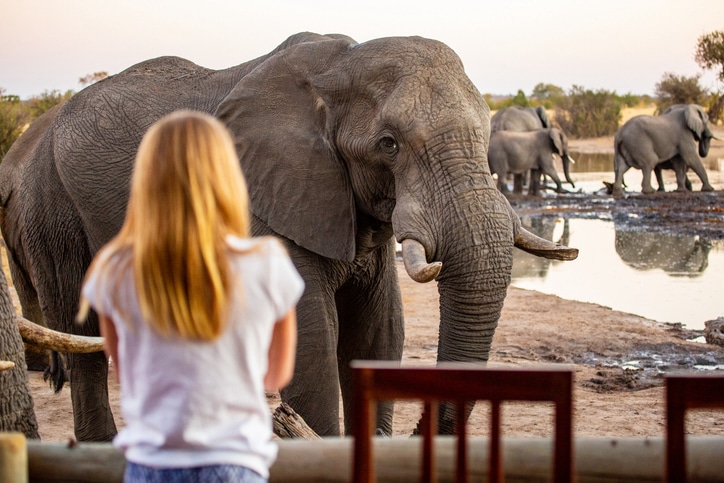This post was originally published on Eco Watch
The government of Zimbabwe has ordered a cull of 200 elephants amid an ongoing drought and food shortages in the country. The order will be the first elephant cull since 1988.
Zimbabwe Parks and Wildlife Authority (ZimParks) has been tasked with the cull. Fulton Mangwanya, director general of ZimParks, said that the culling will be prioritized in areas where there have been human-elephant conflicts, as reported by IFL Science.
According to the ZimParks website, Zimbabwe has the second largest population of elephants in the world. As IFL Science reported, the country is home to around 100,000 African elephants (of the genus Loxodonta).
Hwange, home to Hwange National Park, the largest nature reserve in Zimbabwe, is one of the target areas for culling, The Guardian reported. This area is home to around 65,000 of the country’s elephants.
“Zimbabwe has more elephants than our forests can accommodate,” Sithembiso Nyoni, the minister of environment for Zimbabwe, told Voice of America. “We are having a discussion with ZimParks and some communities to do like what Namibia has done, so that we can cull the elephants and mobilize the women to maybe dry the meat, package it, and ensure that it gets to some communities that need the protein.”
Namibia, which neighbors Zimbabwe, recently ordered a similar cull for over 700 animals, including 83 elephants, The Guardian reported. The cull was also a response to ongoing drought.
The decision has brought criticism from both conservationists and those concerned about the cull’s impact on tourism.
“Government must have more sustainable eco-friendly methods to dealing with drought without affecting tourism,” said Farai Maguwu, director of the nonprofit Centre for Natural Resource Governance, as reported by The Guardian. “They risk turning away tourists on ethical grounds. The elephants are more profitable alive than dead. We have shown that we are poor custodians of natural resources and our appetite for ill-gotten wealth knows no bounds, so this must be stopped because it is unethical.”
Those in support of elephant culling argue it will not only feed people and reduce pressure on resources but will also control the increasing elephant population and its impact on the environment. Chris Brown, CEO of Namibia’s Chamber of Environment, told The Guardian that the elephant population would damage local habitats.
“They really damage ecosystems and habitats, and they have a huge impact on other species which are less iconic and therefore matter less in the eyes of the Eurocentric, urban armchair conservation people,” Brown said. “Those species matter as much as elephants.”
Maguwu argued that although the culling decision is limited by protections such as Convention on International Trade in Endangered Species (CITES), officials have long tried to change the rules for economic gain rather than to help communities amid crises, such as drought and food shortages.
“Zimbabwe has always been pushing for the right to kill elephants,” Maguwu told Voice of America. “We all know when you look at how our natural resources are being plundered right now, like minerals, the whole idea is to sell ivory. It’s not even about the communities there.”
Maguwu continued, “There is a lot that government can do to cushion the people from the impacts of drought rather than killing elephants. I think they should stop that move.”
As for alternatives to elephant culling, World Wildlife Fund has listed several options, including translocation, conflict mitigation efforts and breeding regulations and contraceptives. The organization also supports the development of overpopulation guidelines and procedures by International Union for Conservation of Nature (IUCN).
The post Zimbabwe Orders the Killing of 200 Elephants Amid Drought and Food Shortages appeared first on EcoWatch.





0 Comments